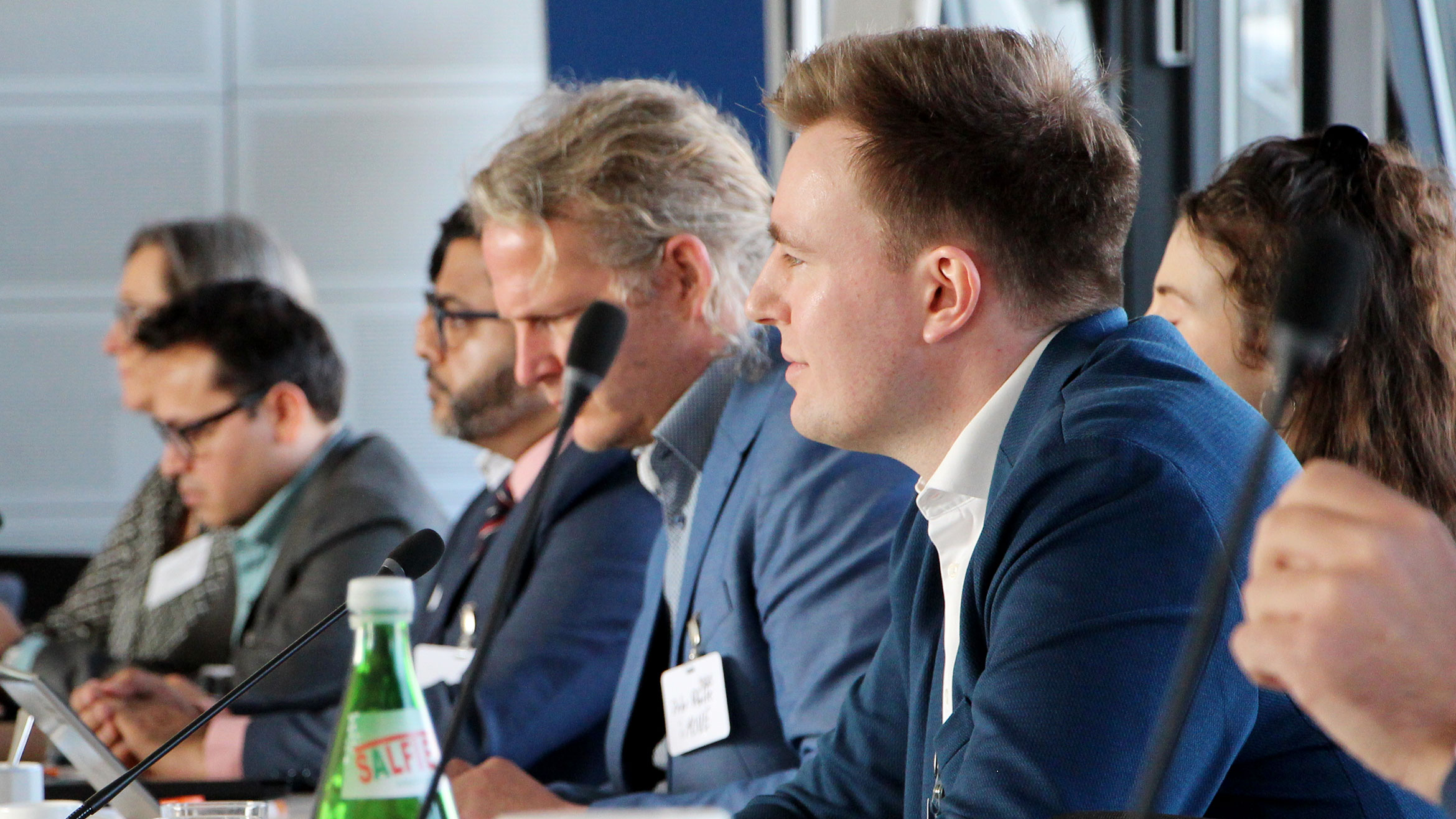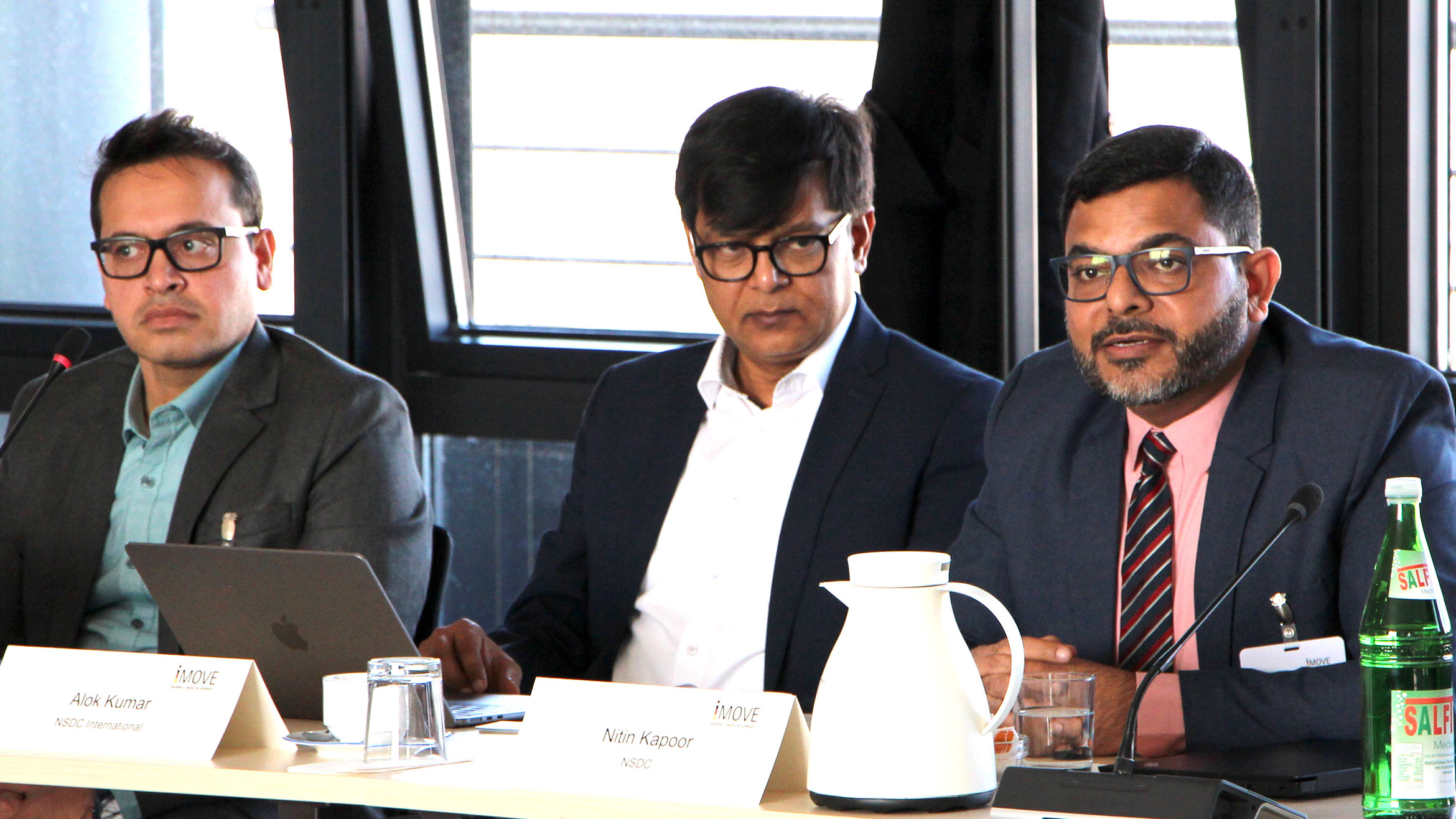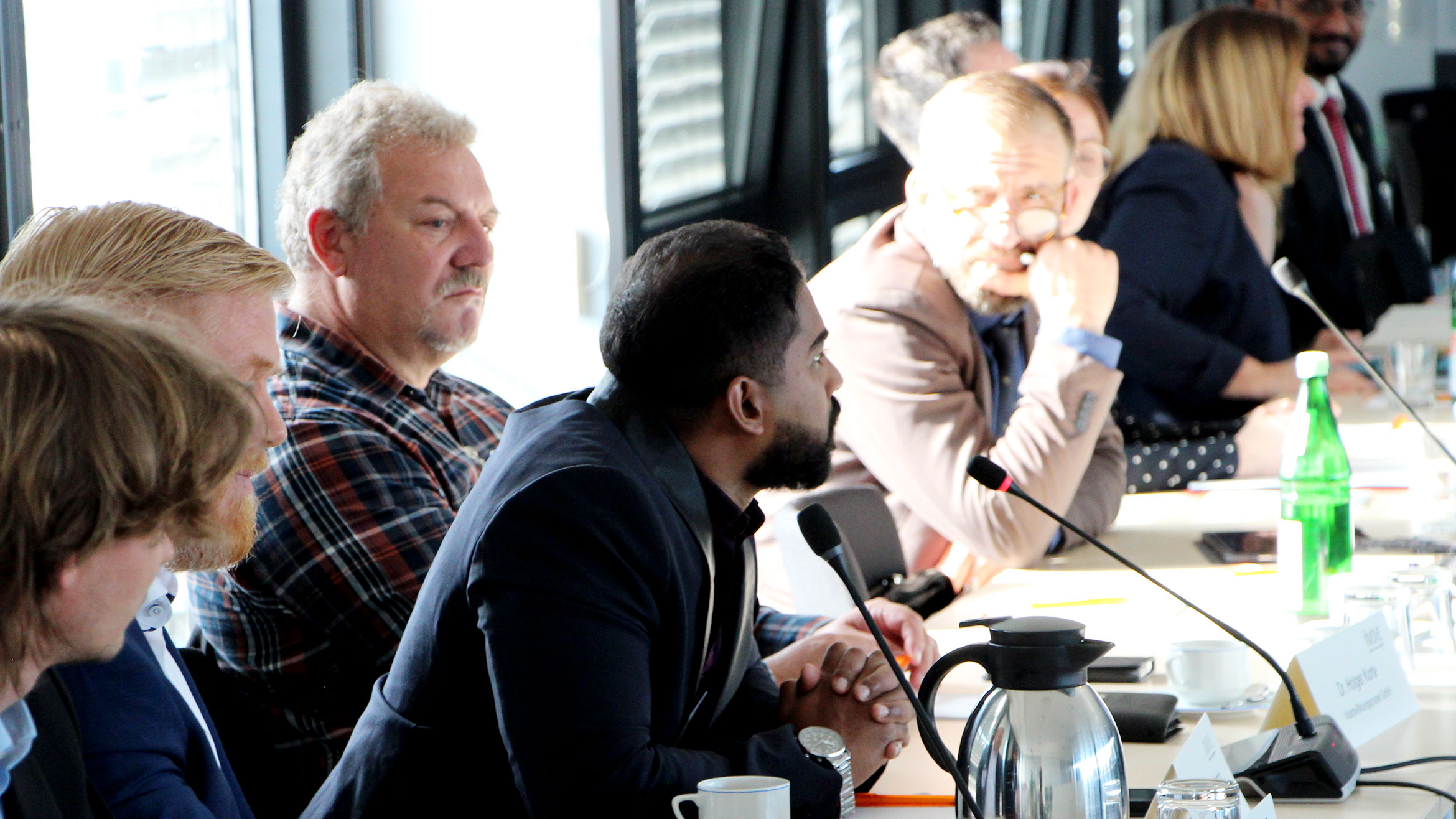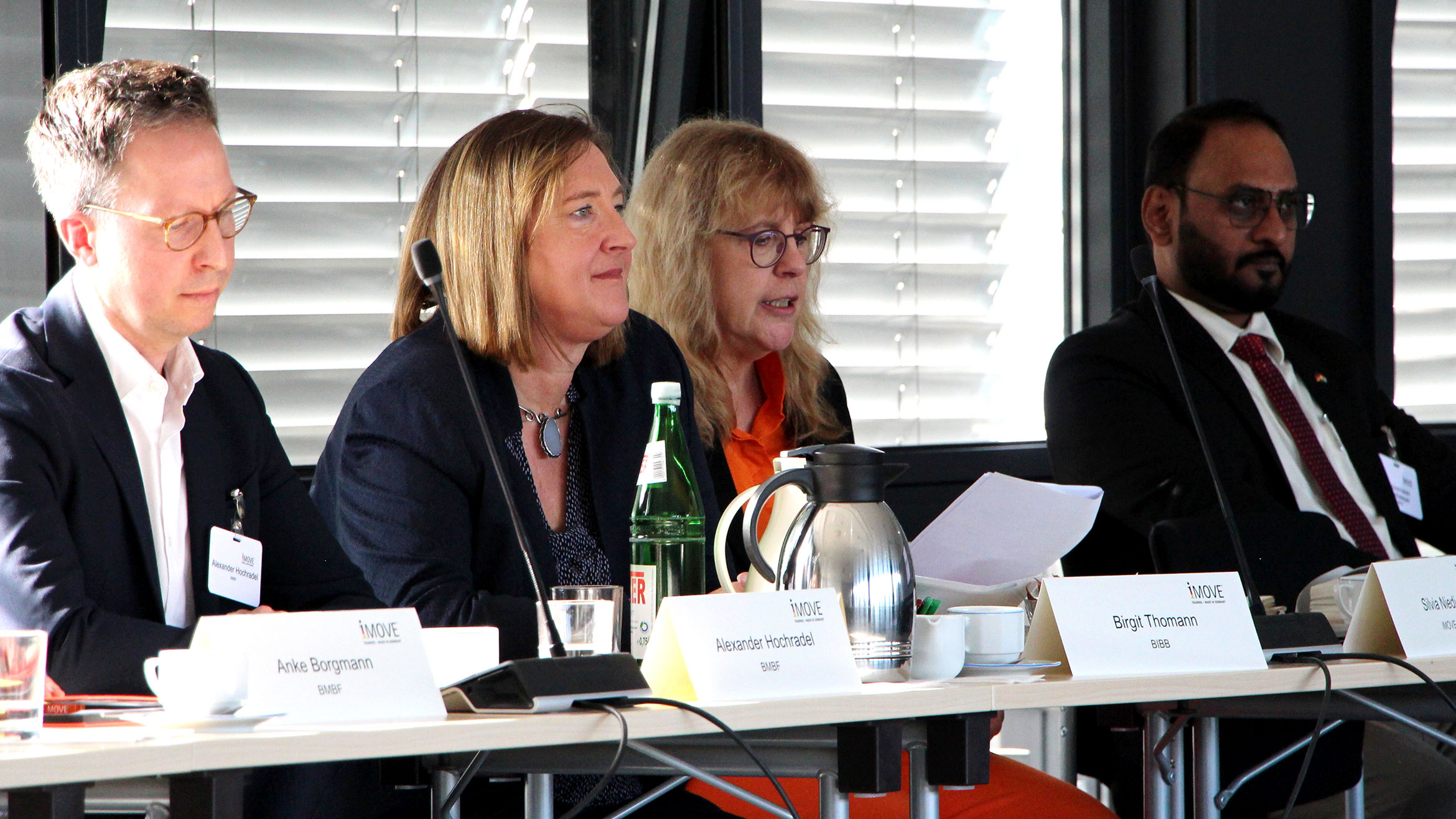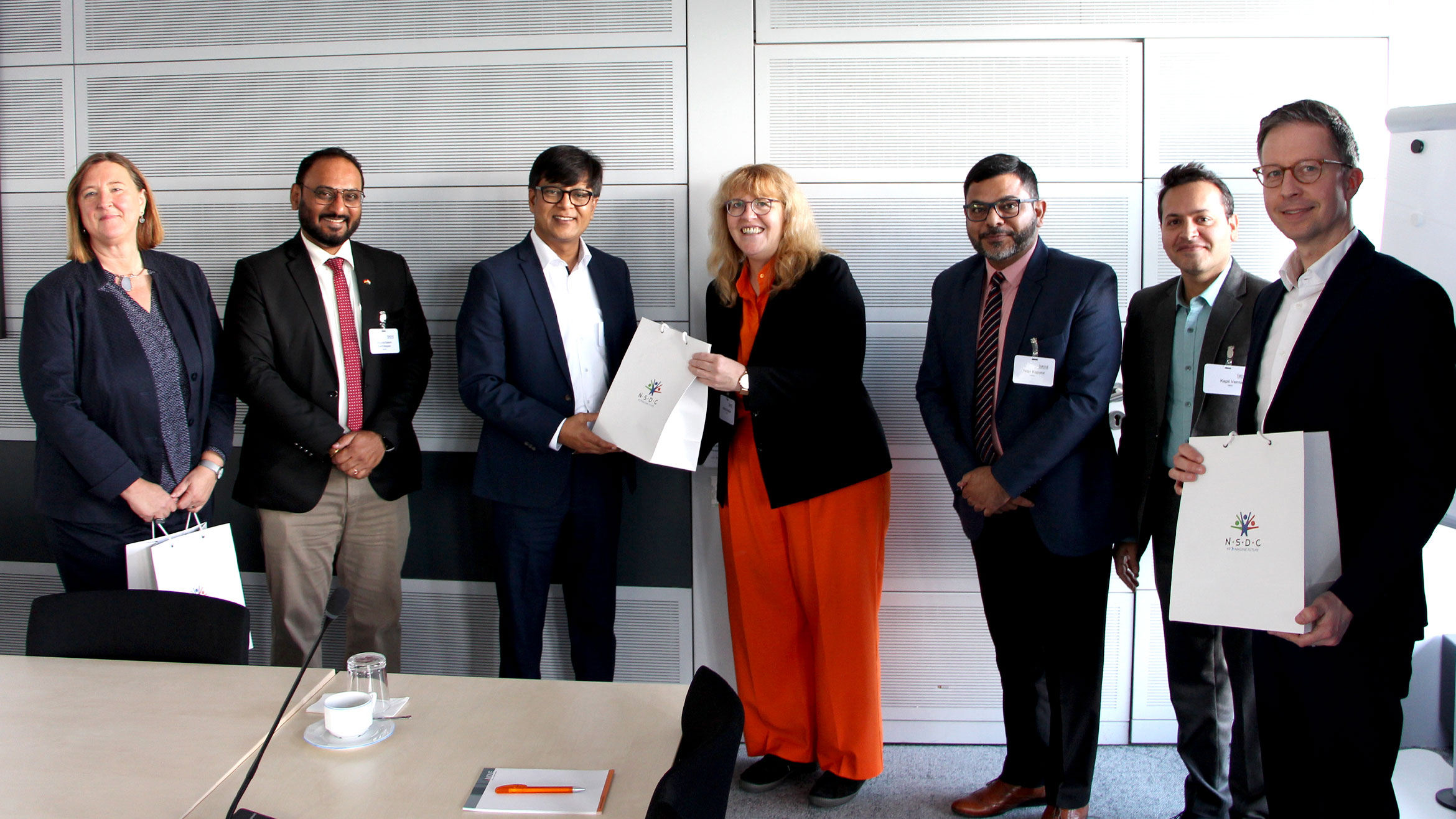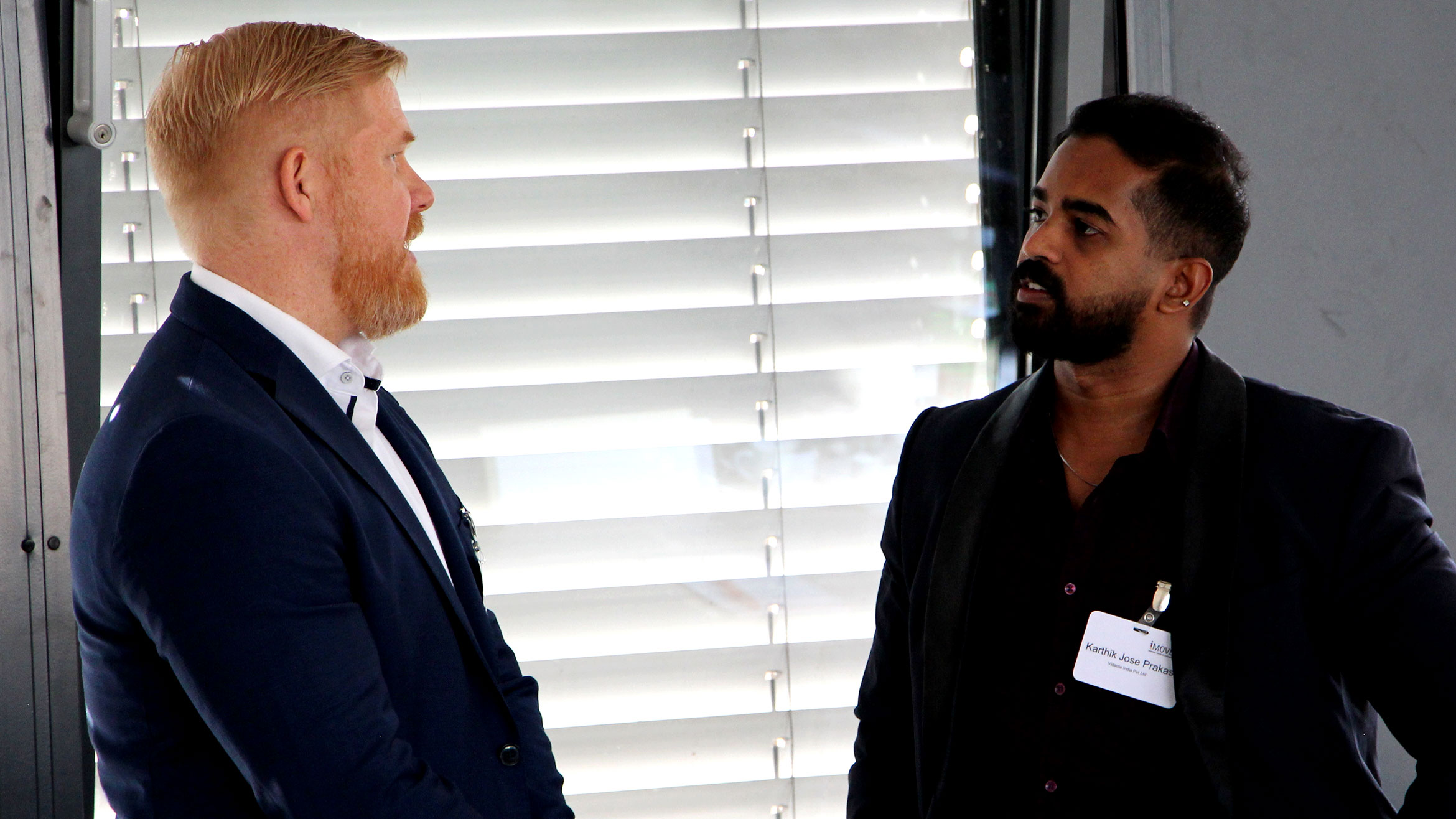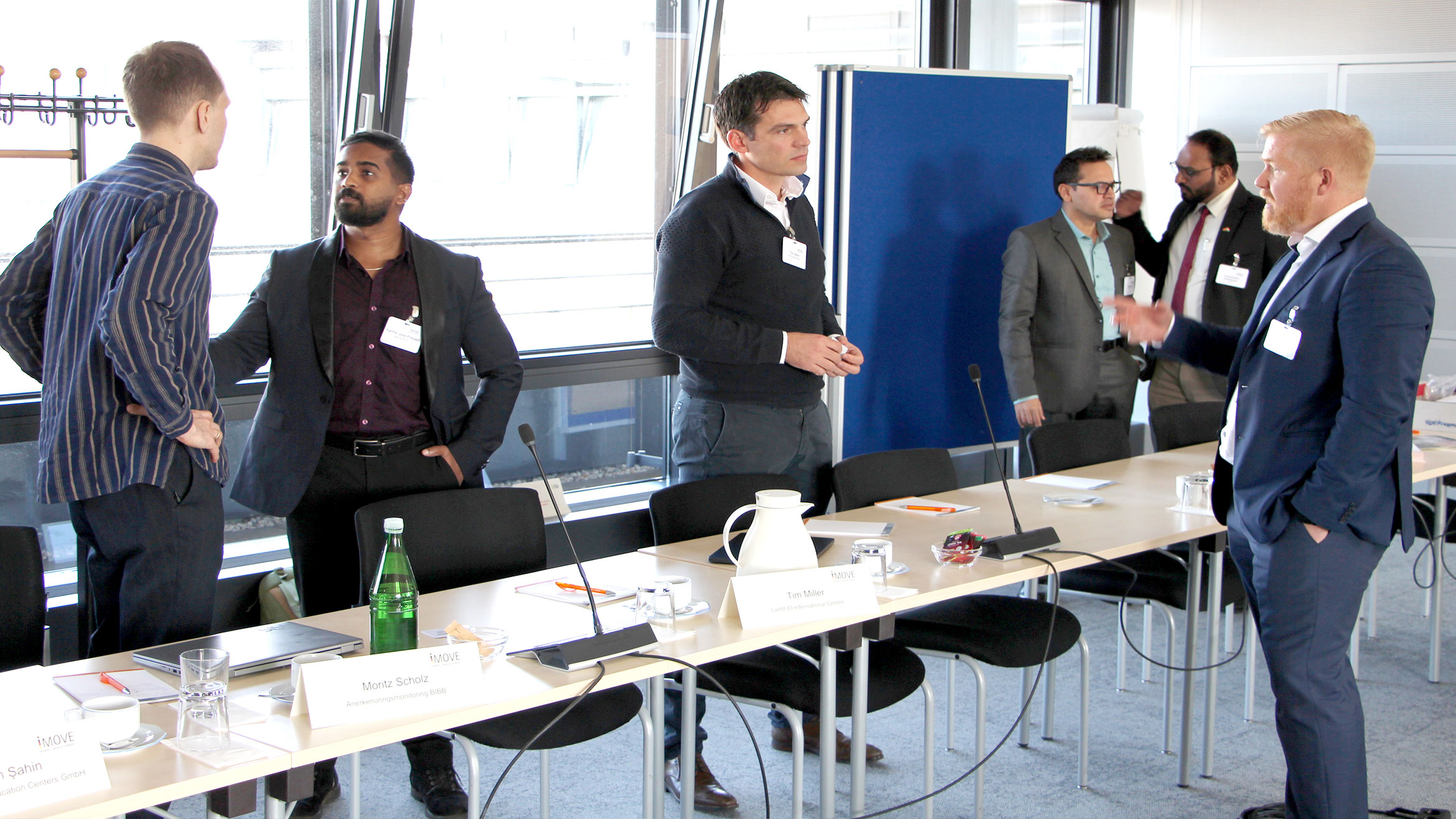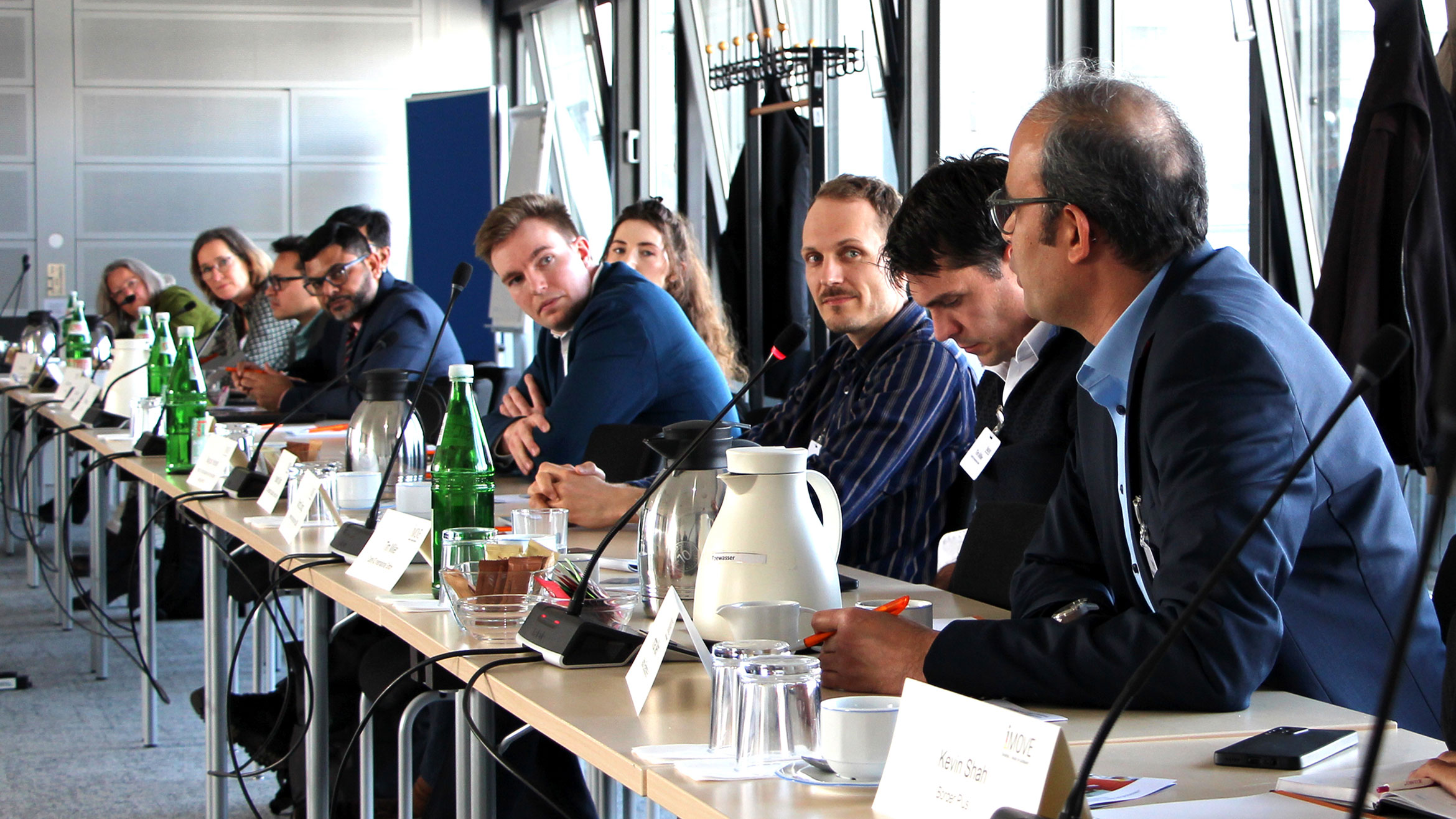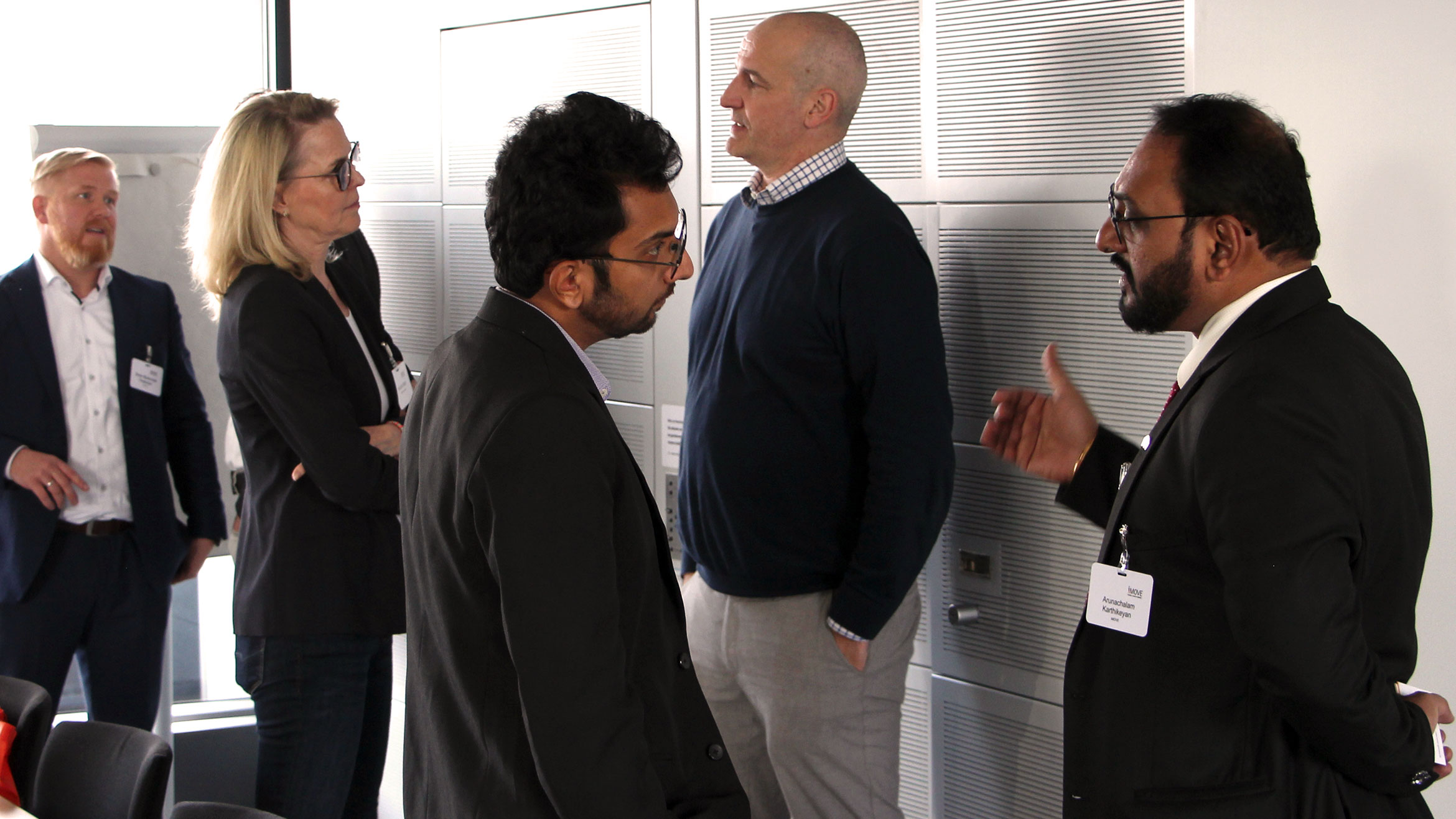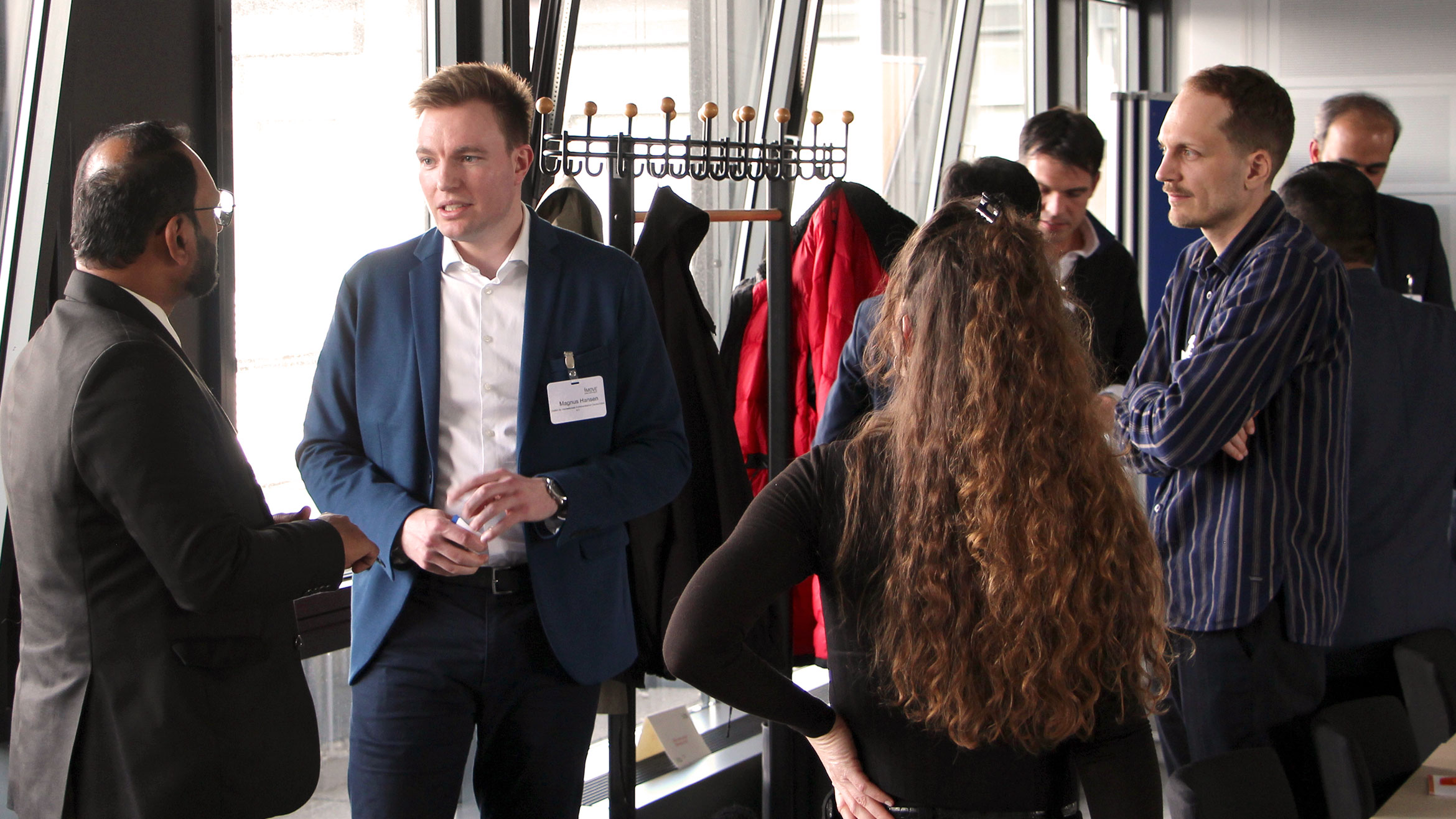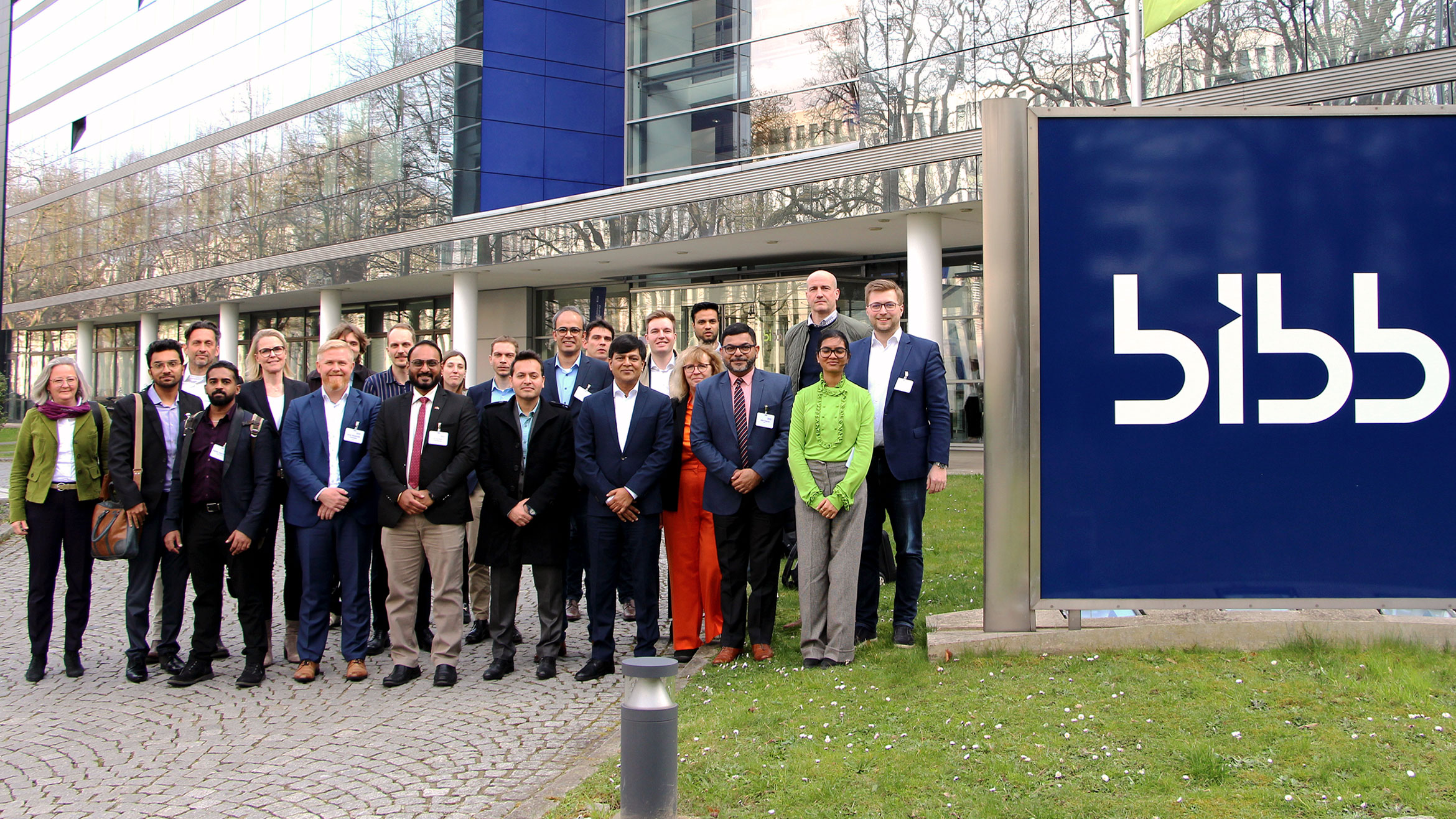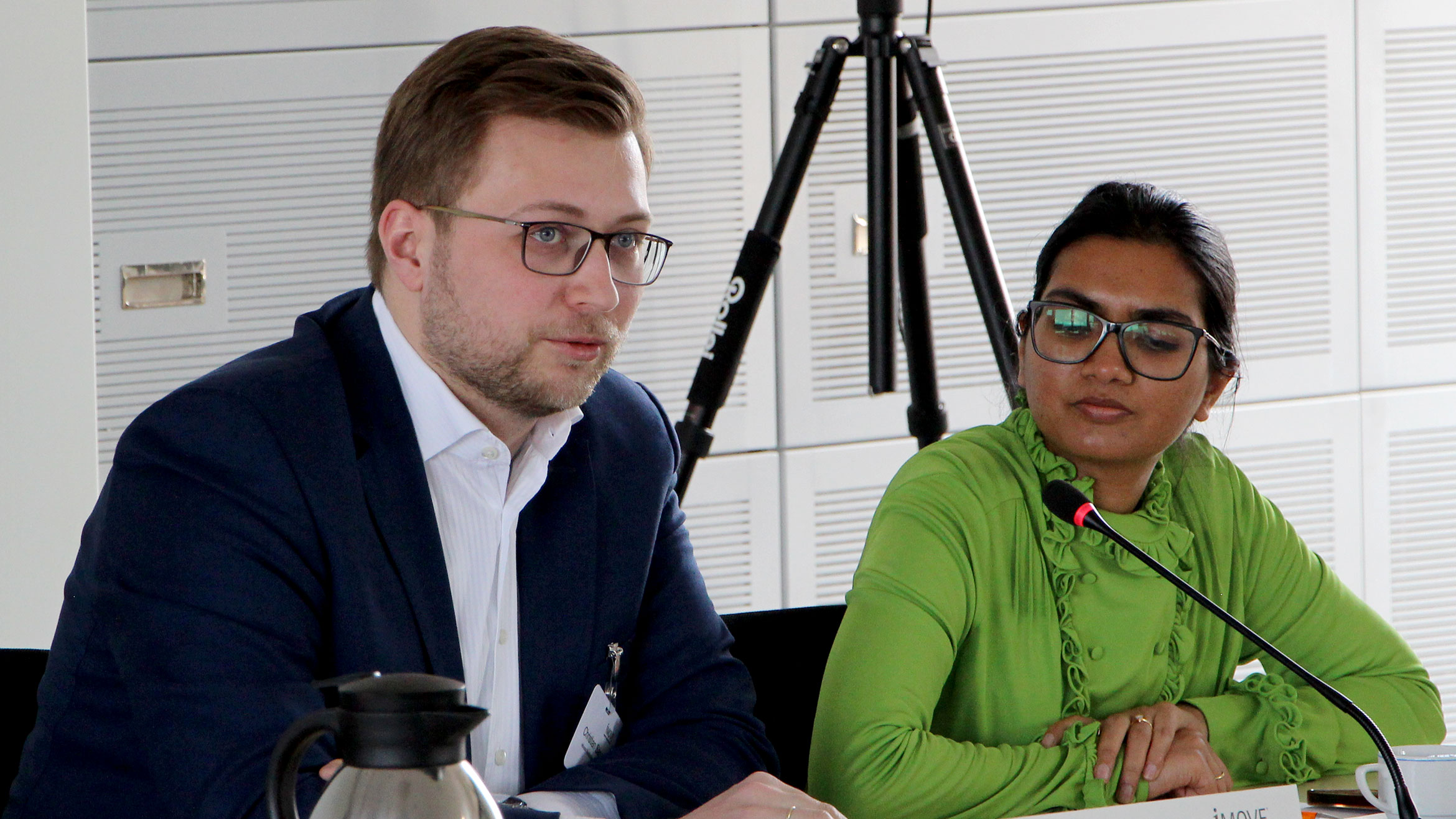Skilled labour migration from India: Business opportunities for education providers
On 24 March 2025, iMOVE had the pleasure of hosting a delegation from the National Skill Development Corporation (NSDC) International from India, marking the occasion with two dynamic round table discussions. The first focused on German language course providers tailored for participants in India. The second brought together key stakeholders in qualification and placement programs designed to attract skilled Indian professionals to the German labour market.
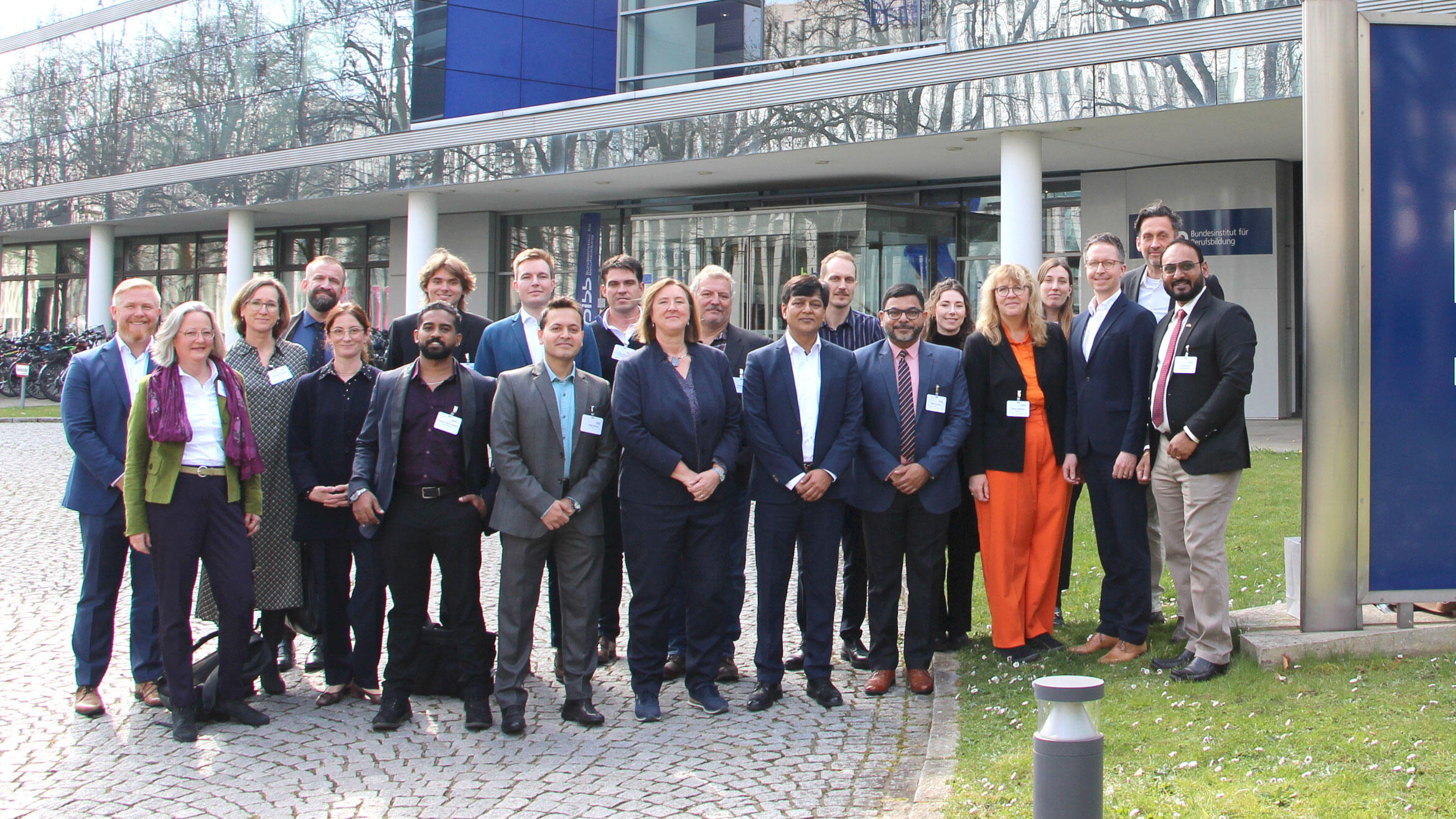
Birgit Thomann, Head of the Department VET International at the Federal Institute for Vocational Education and Training (BIBB), and Alexander Hochradel from the Federal Ministry of Education and Research (BMBF) welcomed the participants.
Silvia Niediek from iMOVE opened the event and emphasised that Germany welcomes skilled workers and trainees who want to expand their professional skills, learning experiences and German language skills. This sustained German commitment to fair labour mobility, she said, is reflected in a number of key legislative initiatives over the past five years, with the German education industry playing a crucial role in helping to upskill people seeking a career in Germany.
NSDC International: Placing skilled labour all over the world
To kick off the exchange, the Indian delegation led by Alok Kumar, CEO of NSDC International, introduced itself. The public-private partnership NSDC, under the aegis of the Indian Ministry for Skill Development & Entrepreneurship (MSDE), contributes to improving the quality of vocational education and training in India in line with international standards, primarily by involving the private education sector and providing financial support. Nitin Kapoor explained the programmes offered by the NSDC Academy.
With the establishment of NSDC International, the organisation has expanded its network to more than 25 countries. NSDC International focuses on the placement of skilled labour from India all over the world. NSDC International is also looking for educational and co-operation partners in Germany with the aim of placing Indian skilled workers in employment. Activities are currently focussed on the healthcare sector, but are also to be extended to other sectors.
Developing language skills
Three providers from the iMOVE network then presented themselves in the first round table. Magnus Hansen from the Institut für internationale Kommunikation Deutschland e.V. (IIK Germany) presented various course options that help learners develop holistic language skills.
Dr Holger Korte and Karthik Jose Prakash from Vidacta-Bildungsgruppe GmbH provided information about their language courses, which cover different language levels, and about their state-certified training courses in the healthcare sector, for example in the fields of physiotherapy and nursing.
The portfolio of Brian Bjoerndal-Pedersen of Tudias GmbH - Die Sprachschule in Dresden includes language courses as well as a preparatory college (Studienkolleg) and spring and summer courses.
Lack of examination places
In the discussion that followed, it became clear that the language certification required for migration often poses complex problems.
The number of young people in India who want to learn German is far higher than the number of courses on offer. This is not least due to a lack of qualified language teachers. And once a course has been successfully completed, all too often there is no opportunity to take the corresponding exam at a certified centre in a timely manner. As a result, Indians are even travelling abroad to have their language qualification certified.
Several education providers proposed digital solutions such as online platforms and virtual classrooms to expand language learning opportunities and extend the reach of qualified teachers beyond their immediate environment.
Digital teaching assistants were also suggested as a complementary measure. These could support teachers by taking on administrative tasks, providing learning materials and catering to the individual needs of pupils.
Many attendees agreed that potential skilled workers and trainees should be brought to Germany as early as possible, as learning success is significantly better when they are directly immersed in the language and culture. The need to use their own language skills on a daily basis contributes significantly to developing them more quickly and effectively.
Fair recruitment
Five providers from the iMOVE network had their say at the second round table. At the request of NSDC International, six German companies that carry the RAL quality mark "Fair Recruitment Care Germany" and recruit care workers from India also took part.
Tim Miller, Managing Director of Certif-ID International GmbH, kicked off the presentation with TalentSure. This is a global mobility platform that offers specialised talent pools in various industries and integrates an innovative business model that uses artificial intelligence to optimally support all parties involved throughout the entire recruitment process.
Brigitte Hanemann explained the services offered by TÜV Süd Akademie GmbH. It operates its own branch in India and offers a wide range of training programmes in areas such as quality, safety, environmental management, IT and healthcare. The training courses and certifications are internationally recognised.
Imran Mehr from Abnoy Enterprises offers comprehensive services such as consulting and onboarding as well as support with visa matters, the recognition of qualifications and professional integration. In addition, the company opens up networking opportunities through close cooperation with companies, educational institutions and government agencies.
The education providers IIK e.V. and Tudias GmbH, who were already represented at the first round table explained further offers from their portfolio. IIK presented the Career Pathway Programme, which supports international skilled workers entering the German labour market. It includes an intensive German course to prepare for final exams and support with the visa process. From April 2025,
Tudias will offer a career service for foreign skilled workers and support them in their professional integration, e.g. by providing career counselling, arranging contacts with companies and assisting with the recognition of degrees and qualifications.
Meeting cultural diversity with respect and flexibility
In the subsequent discussion, the participants emphasised the great importance of transparency throughout the entire recruitment process in order to facilitate fair labour migration for all sides.
Intercultural aspects of recruiting skilled labour were also addressed in detail. One participant emphasised the challenge for recruiters that applicants from India who work in the care sector in Germany, for example, often change employers. The lack of long-term job retention is a major obstacle to investment for many employers when recruiting foreign skilled workers.
According to Kapil Verma from NSDC, in order to successfully overcome these challenges, it is particularly important not only to support professional integration, but also to provide transcultural support. Targeted preparation for the German labour market - which includes both professional and interpersonal requirements - can help trainees and skilled workers to adapt more quickly to the new circumstances and remain in the German healthcare system in the long term.
With regard to the topic of integration, the NSDC added that international skilled workers are often expected to adapt quickly to German conditions. The German side should also show more understanding and flexibility. This includes a basic understanding of cultural differences.
The participants agreed that sustainable and successful cooperation is only possible if both sides are willing to approach each other.
